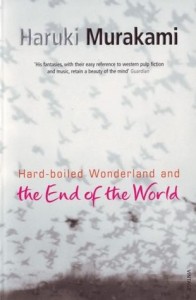 Title: The People of Forever Are Not Afraid (Goodreads)
Title: The People of Forever Are Not Afraid (Goodreads)
Author: Shani Boianjiu
Published: Hogarth, 2012
Pages: 320
Genres: Young Adult
My Copy: ARC from Publisher
Buy: Amazon, Book Depository (or visit your local Indie bookstore)
Lea, Avishag and Yael grow up in a small town on the Israel/Lebanon border leaving normal teenage lives. The People of Forever Are Not Afraid tells the story of these three normal Israeli girls from passing notes in school, talking about boys to turning eighteen and being conscripted into the army. Winner of the National Book Foundation’s “5 Under 35” authors to watch list in 2011, Shani Boianjiu’s debut novel is a coming of age novel unlike any before. Growing up in this intense war torn world changes everything, even for three normal teenage girls.
First thing I would like to say is I was hugely impressed with The People of Forever Are Not Afraid, I never expected to find a New Adult novel that offers so many different elements. While this seems to be marketed as a Young/New Adult novel, I think this is because the old “coming of age” formula seems to go hand and hand with these two genres. Though this is so much different; these three girls are plucked from their normal teenage lives, put into the army and forced to grow up rather quickly.
There are some really interesting themes throughout this novel. Firstly there are the major themes of growing up as an Israeli girl and conscription, and Shani Boianjiu is the voice of experience here; at the age of 18, she entered the Israeli Defence Forces and served for two years. So you get the sense that maybe this novel is semi-autobiographical but not knowing much about the author I wonder which of the three girl’s best resembles her. Though I have a feeling that Lea, Avishag and Yael all have an element of Boianjiu in them; I like how she has the three different personalities within the book to help show the how war really effects a person.
This brings us to the theme of War; while for the most of the book they are living in a perpetual state of war, the conflict between Israel and Lebanon still puts them into real danger. Though the reader has to ask themselves if eighteen too young to deal with war; they are still in a state of self-discovery when they are thrown into such an extreme situation. I know it is part of their heritage but when you talk about war and even RPG children (“children who tried to shoot RPGs at soldiers and ended up burning each other because they were uninformed, and children”) you really have to wonder how old is old enough to deal with war.
Finally, the book looks at the influence western society has on the Middle Eastern culture; I’m sure girls thought about boys and sex but there is a definite changing that comes through in the novel. References to Dawson’s Creek and Mean Girls and the whole attitude towards relationships (breaking up every week) and sex really feels more like something from an American teen drama than an Israeli town. I don’t know much about their culture but I know enough about pop-culture and the difficulties that western society has on Muslim and Jewish heritage to notice this real culture clash.
The People of Forever Are Not Afraid really is an interesting New Adult novel; it is smart and thought provoking and yet it’s really funny as well. I remember the cheesy lines made me chuckle like the idea of a mother not wanting her daughter to have a party because she was worried that her friends will break her hymen. All these elements seem to work together to produce a novel that is both easy to read and unlike anything I’ve read before.
I was never sure what to make of The People of Forever Are Not Afraid but I’m glad I had a chance to read this novel. It’s a debut novel that shows us that Shani Boianjiu is an author to watch in the future. It’s not without its flaws, the repetitiveness got to me a little but in the end all the good aspects of this book outshined any problems. It’s the type of novel that made me want to turn back to page one and start reading it again. I’m not a fan of Young Adult and New Adult novels in general but I can’t help but recommend this one to all readers.

 Title: Hard-Boiled Wonderland and the End of the World (
Title: Hard-Boiled Wonderland and the End of the World ( Title: Life After Life (
Title: Life After Life ( Title: Ghostman (
Title: Ghostman ( Title: Ex-Heroes (
Title: Ex-Heroes ( Title: In A Lonely Place (
Title: In A Lonely Place ( Title: The Night Watch (
Title: The Night Watch ( Title: Seating Arrangements (
Title: Seating Arrangements ( Title: Fool Moon (
Title: Fool Moon ( Title: Without Warning (
Title: Without Warning (